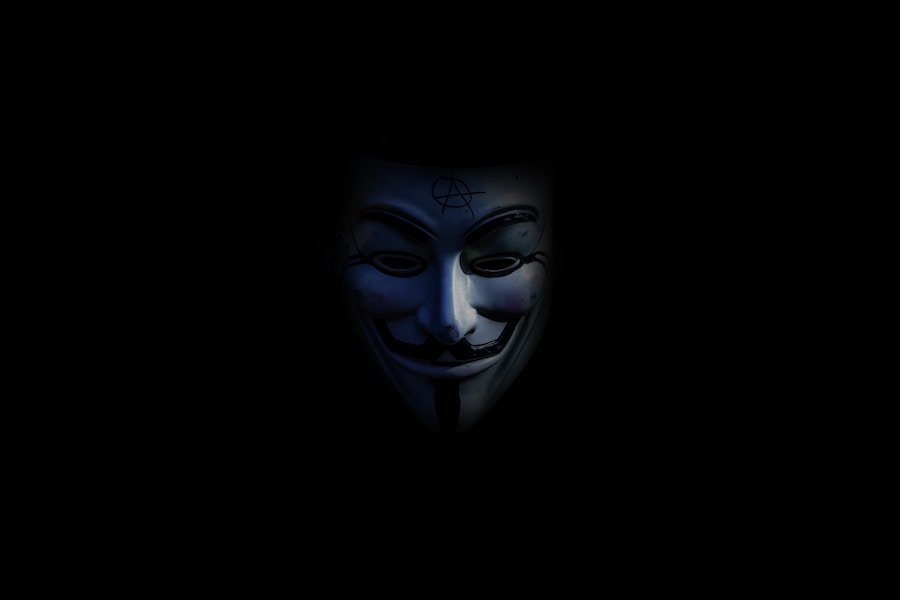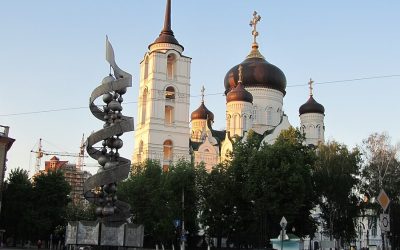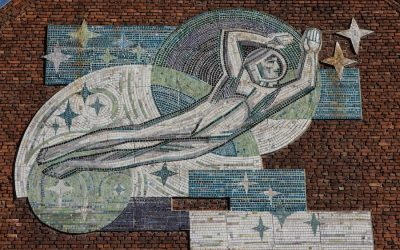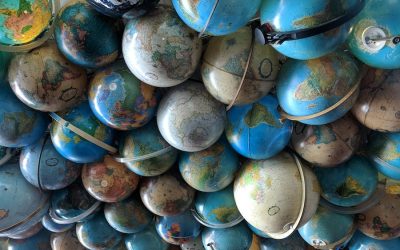How expert evaluations are “defending the motherland” in the era of the Special Military Operation.
Dmitry Dubrovsky
Photo: Experts can’t stand the pressure and are signing off on things that they would never have endorsed before. Photo by Tarik Haiga on Unsplash
In Russia, the task of providing expert evaluations, which are required in a number of legal cases, is often entrusted to employees and professors at higher educational institutions. This field has long been a battleground between independent professionalism and science, on one side, and servility and “service to the state,” on the other.
Experts or Scientists?
An obvious source of this division is one side’s (misplaced) confidence in the state’s infallibility as the organization ordering these evaluations for all kinds of cases involving “extremism.” Moreover, the state often interprets any oppositional statement or civil action as extremism.
The scientific community does not typically recognize those individuals who provide their expert evaluations in such cases as scientists. Nevertheless, the courts recognize them as “respected experts.”
And so Natalia Kryukova, who has never published a single scientific paper, has written at least a hundred expert testimonies on topics ranging from pornography to right-wing radicalism. Every one of them has supported investigators’ findings, regardless of how little basis these findings have had in science, or even common sense.
During a case hearing involving 12 former members of the National Bolshevik Party, Kryukova’s coauthor, Doctor of Cultural Studies Vitaly Batov, innocently admitted that he “always does what the client wants.”
Patriotism as Civil Engagement
The matter is not limited to simple servility—the desire to please the requesting party. In Russia, there is a political divide between self-proclaimed “patriotic” science (or “native” science, which relies solely on theories and research methods invented within the country) and international science (or “provincial” science, which engages with the international scientific community and uses internationally recognized theories and methods). The line of divide runs between Poklonnaya Hill and Bolotnaya Square.
With regard to expert evaluations, this means that supporters of native science not only “scientifically confirm” any state accusation made in court, but also consider their participation a form of “civil engagement.” Incidentally, this approach puts them in the same camp as those who believe that the responsibility for defending unjustly persecuted civil activists falls on academic researchers.
“Secret Nazi Supporters”
In 2018, one of the well-known experts on “cases of extremism,” the “expert on call” for all St. Petersburg investigations, St. Petersburg University Professor Boris Misonzhnikov, shared his views on the role and task of expert evaluations.
He started by quoting Moscow State Pedagogical University Professor Boris Slavin:
…Conservative ideology…literally sweeps away bankrupt liberal ideology throughout all spheres of society,” which incites “…the hatred of some members of the liberal intelligentsia for everything that Putin and his team say and do.
Mr. Misonzhnikov argues that the liberals are in fact secret supporters of the “Ukrainian Nazis” and explains what caused the liberal “hatred” of the Putin regime—as is customary of statesmen, he sees the regime as synonymous with the country. According to Misonzhnikov, liberals, in their “hatred of Russia,” will not hesitate to “support Ukrainian Nazis” and “Nazi Euromaidan.” This is expressed, in particular, during court cases involving incitement of enmity and hatred, which Mr. Misonzhnikov is able to find in any statement sent to him for expert evaluation.
Evidently, this is why he essentially openly declares that his task is not to discuss the potential danger of one text or another, but rather to support the state in its fight against enemies secret and overt.
This is confirmed by guidelines written by St. Petersburg State University lawyers. Experts involved in “high-profile cases,” they say, should “not act on the side of one of the disputing parties, but ensure the interests of the state and authorities.”
Evaluation vs. Reputation
This version of “defending the interests of the state” can be seen in more than just the biased—and often not entirely professional—findings of the St. Petersburg State University Center of Expert Evaluation. Another example is the evaluations given in the 2021 “Putin Doll” case held in Perm. Many of those who gave expert evaluations in this case, in particular Doctor of Philological Sciences Valery Mishlanov, can hardly be accused of being low-level professionals.
Employees of Perm State University claimed that they “acted individually” and “of their own volition.” However, the order to carry out the evaluation came straight from the rector.
It is difficult to understand the university personnel’s desire to participate in the production of material that is unlikely to bring scientific returns yet may be disastrous for their reputations. In the Putin Doll case, many of Mishlanov’s colleagues and other co-authors of this expert evaluation publicly assessed it as both servile and exceedingly unscientific.
Expert Evaluations as an Instrument of Repression
The content of these evaluations confirms the thesis that these experts see evaluations as part of their duty to defend the state. In expert evaluations provided by the prosecution, “authorities,” “the police,” and “criminal investigators” act as a unified social group against which the accused “spread enmity and hatred.”
As a result, any critical speech mentioning improper or unlawful activity committed by the authorities is viewed as “incitement of enmity and hatred toward a social group.” This not only legalizes the persecution of the opposition on the pretext of “fighting extremism,” but also strengthens the position of these “experts on call.” By formally speaking in the name of “scientific knowledge,” they become an important instrument of repression.
New Military Censors
The outbreak of the war deepened the divide between these two parts of the academic community in Russia. Essentially, a regime of military censorship has been introduced. A significant share of expert philologists and psychologists have become de facto military censors.
Even those who were not previously seen to voice support for the conservative segment of the academic community have now visibly changed their positions. Of course, it is not always clear whether this change has occurred on their own initiative or under pressure from their superiors.
Expert philologist Sergei Kuznetsov, a respected figure in St. Petersburg, who had until recently steered clear of biased expert evaluations, wrote an evaluation in the case involving the priest Kurmoyarov. In it, he directly accused the hieromonk of “discrediting V. Putin” and “discrediting the actions of the Russian government abroad.”
It is worth noting that Kuznetsov is a co-author of a methodological manual on the analysis of texts on the subject of extremism. He served as the director of the Counter-Extremism Center—a career that was distinguished by his balanced stance on controversial issues related to expert evaluations.
The outbreak of the war has caused the institution of expert evaluations to crumble, as well as degrading the professional reputation of experts overall. In effect, the duty of experts in “defamation” cases has been simply to compare the statement with the official position of the Ministry of Defense of the Russian Federation. This is literally the work of a military censor.
New Enemies of the People
Some experts have gone further: they have suggested that any who criticize this approach should be considered enemies of the people and the state.
This approach is evident in numerous VKontakte publications by Professor Elena Galyashina of Moscow State Law University, until recently a respected expert. After the war began, she started making strong statements about how “foreign agents” “undermine” the positions of real, “patriotic experts,” whose task is to protect “state interests under the difficult circumstances of the special military operation.”
Professor Galyashina rejoices in the fact that, thanks to the latest amendments to the law, there will be no more “foreign agents in the sciences.” She suggested these people retrain and gain new qualifications…as “500s” (a military term for deserters and those who refuse to participate in hostilities).
Finally, on her VKontakte page, the professor explicitly states that publications on Amicus Curiae (a community of experts, lawyers, and scientists created in 2015 to promote the standards of professional, unbiased expert evaluation and a fair judicial process) “…are a component of the information war against the foundations of the Russian state system, against its criminal justice system, and are aimed at intimidating, first and foremost, governmental and non-governmental expert organizations, and at destabilizing the socio-political situation in the country. It is indicative that the main role here is played by foreign agents, Soros-ites, and, most likely, their Western sponsors. I am afraid this could not have happened without the work of the Ukrainian Main Directorate of Intelligence and the Center for Information and Psychological Operations.”
It is worth noting that the author of this article was also named a foreign agent in April 2022.
* * *
The exacerbation of this confrontation in the field of expert evaluation, which was originally political in nature, has led those who defend the authorities to fortify their position to an unprecedented degree. More and more voices choose to “protect the homeland from Soros” with the help of expert evaluation and, in the logic of martial law, declare any who disagree—or try to protect those who do—to be enemies of the people.
The cost of opposition is growing ever steeper. Experts cannot withstand the pressure and have begun signing off on things that they would never have endorsed before. Alternatively, they try not to deal with the more “dangerous” types of evaluations.
Among the main dangers we face now are expert evaluations of the “false” accusations of war crimes committed by the Russian army in Ukraine.





0 Comments